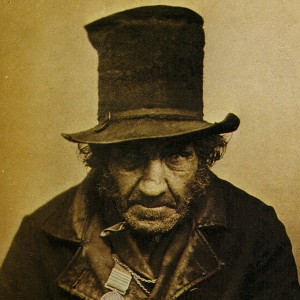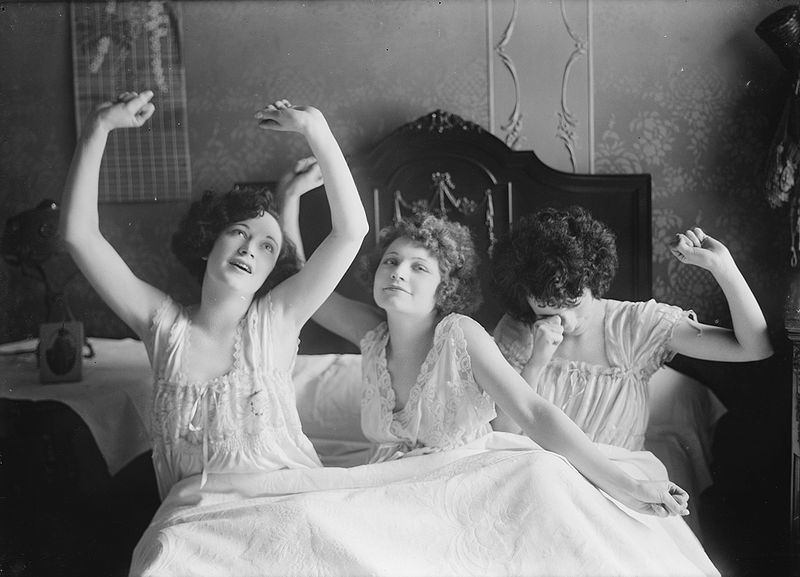You can’t sell your husband and raffling off your daughters probably isn’t a great idea, either. But that was the plan carried out by a struggling Wisconsin farmer featured in an article in the September 15, 1897 New York Times. The story:
“Maple, Wis.–During the past few days the Finnish settlement, a few miles south of Maple, has been in a state of great excitement over a remarkable succession of events. There are about two hundred residents in the settlement–all farmers, thrifty and nearly all in comfortable circumstances. There is a large surplus of unmarried young men in the community and a scarcity of marriageable young women, so that every female old enough to be courted receives the attentions of from one to a dozen rival lovers. A widower named Hanes Dorfkle is one of the settlers, and has been living, since the death of his wife, with three pretty daughters in a little log house somewhat removed from the main settlement. Lately Dorfkle met with a number of reverses which crippled him financially. He had accumulated enough money since his residence there to pay for a forty-acre tract of farming land and to equip the farm with stock and the necessary implements for tilling the soil and harvesting the crops, but this year his crops were poor, his oxen died, and his poultry was carried away by hawks, so that while his neighbors saw plenty on hand to carry them through the coming long Winter, the old man saw starvation looking into the faces of himself and three daughters. Something must be done, and the wary old Finlander set to thinking out a scheme for replenishing his depleted exchequer. At last an idea came to him, and he lost no time in shaping it into a lucrative scheme. He loved his three daughters and they loved him dearly, but they had dozens of young men lovers, and sooner or later they would leave him to live the remainder of his days in poverty and loneliness. Why not realize something on his daughters? It was a good scheme, and he proceeded at once to carry it out.
Girls Agree to a Raffle
The old man, Dorfkle, held a conference with his three daughters, and unfolded to them his plan for making money. He proposed at first to have an auction, and to sell them, one by one, to the highest bidder, but the young women shrank from such a barbarous suggestion, though they signified their willingness to acquiesce in any legitimate scheme of money making that the father might devise. At last the old gent thought it might be a good scheme to have a raffle, and so informed the three dutiful young women. They objected at first, on the ground that they might be obliged to accept men as their husbands who were unsatisfactory to them, but when the father promised that the tickets should be sold to persons only who were acceptable in all respects, there was nothing left for the girls to do but to assent, and this they readily did.

“Every man in the village, married or single, rich or poor, homely or handsome, had possessed himself of one or more chances for the hand of one of the fair daughters.”
So it was whispered about the neighborhood one day last week that Farmer Dorfkle had decided to raffle off his daughters, and the day later the whisperings were confirmed, for Mr. Dorfkle himself appeared among the people with a basketful of pasteboard cards, upon each of which the information was contained that the holder thereof was entitled to one chance on one or another of the three maidens fair. The tickets went like hot cakes at $1 apiece, and within a few days the loving father had exchanged his basketful of pasteboards for a like measure of shining silver and gold. In his anxiety to dispose of all the tickets. Mr. Dorfkle forgot his promise to discriminate in favor of the best-looking and most prosperous suitors in the settlement. He took everybody’s dollar in exchange for a ticket, and the consequence was that every man in the village, married or single, rich or poor, homely or handsome, had possessed himself of one or more chances for the hand of one of the fair daughters long before the time set for the raffle.
Prizes Drawn at the Schoolhouse
The day came for the great event, and the schoolhouse was packed to the outer door with men, women, and children. People in neighboring towns had heard of the novel affair, and came from all directions to witness the final proceedings. Two hundred and fifty tickets upon each girl had been sold, and the arrangement was that each prize should be disposed of separately under the auspices of a committee selected out of the audience. Tickets numbered to correspond with those sold were placed in one box, and another box contained 240 blanks and one number marked ‘Prize.’ Two young girls were then selected to preside over the boxes, and the drawing commenced, the tickets being removed from both boxes simultaneously until the lucky number drew the prize. For half an hour the audience sat in suspense, while the two girls slowly withdrew the numbers and compared them under the vigilant eyes of the committeemen, but at last the number 115 was responded to by the exclamation ‘Prize!’ and the first raffle was over. Then followed a wild skirmish for the owner of the lucky ticket, and when found he was carried to the front over the heads of a good-natured crowd. The holder of the winning ticket proved to be a thrifty young man of the settlement, who had long sought for the hand of the eldest daughter, Hulda, whose husband he was now to become.
A Married Man Gets No. 2
Next came the raffle for the second daughter, a rosy-cheeked lass of twenty-two Summers. This time the winning ticket was held by one of the richest men in the town, but, unfortunately, he was a married man with a large family. This caused a long delay in the proceedings, during which the entire audience entered into a heated discussion as to what the disposition should be made of the ticket, but it was finally agreed that the lucky number should be sold at auction then and there. This was done, and, after considerable spirited bidding, Miss Minnie, the second daughter, became the prospective bride of a middle-aged widower, who paid $50 for the prize.
Then came the raffle for the youngest daughter, and things were progressing smoothly enough, when an error was discovered which caused a bitter altercation between two ticket holders, and came near precipitating a free-for-all fight among the spectators. Through carelessness the winning number had been duplicated, and there were two claimants for the hand of daughter No. 3. At length a general row was averted, however, by the adoption of a happy suggestion. These two claimants resorted to a game of ‘freeze out’ for a determination of the matter, and for two hours they sat at a card table, surrounded by an excited crowd of friends, manipulating the pasteboards for a bride. Slowly the stack of chips in front of the unlucky player dwindled to a paltry few, and at last his opponent swept the board, and the game was decided in favor of a young man named Gustav Johnson, who labors by the day on the farm of his father.
True to their promises the three daughters will allow themselves to be led to the altar by the three lucky winners, and the three weddings will take place within a month, upon which occasion a grand dance will be given in the schoolhouse to all the people of the settlement.”
Tags: Gustav Johnson, Hanes Dorfkle, Hulda Dorfkle, Minnie Dorfkle

